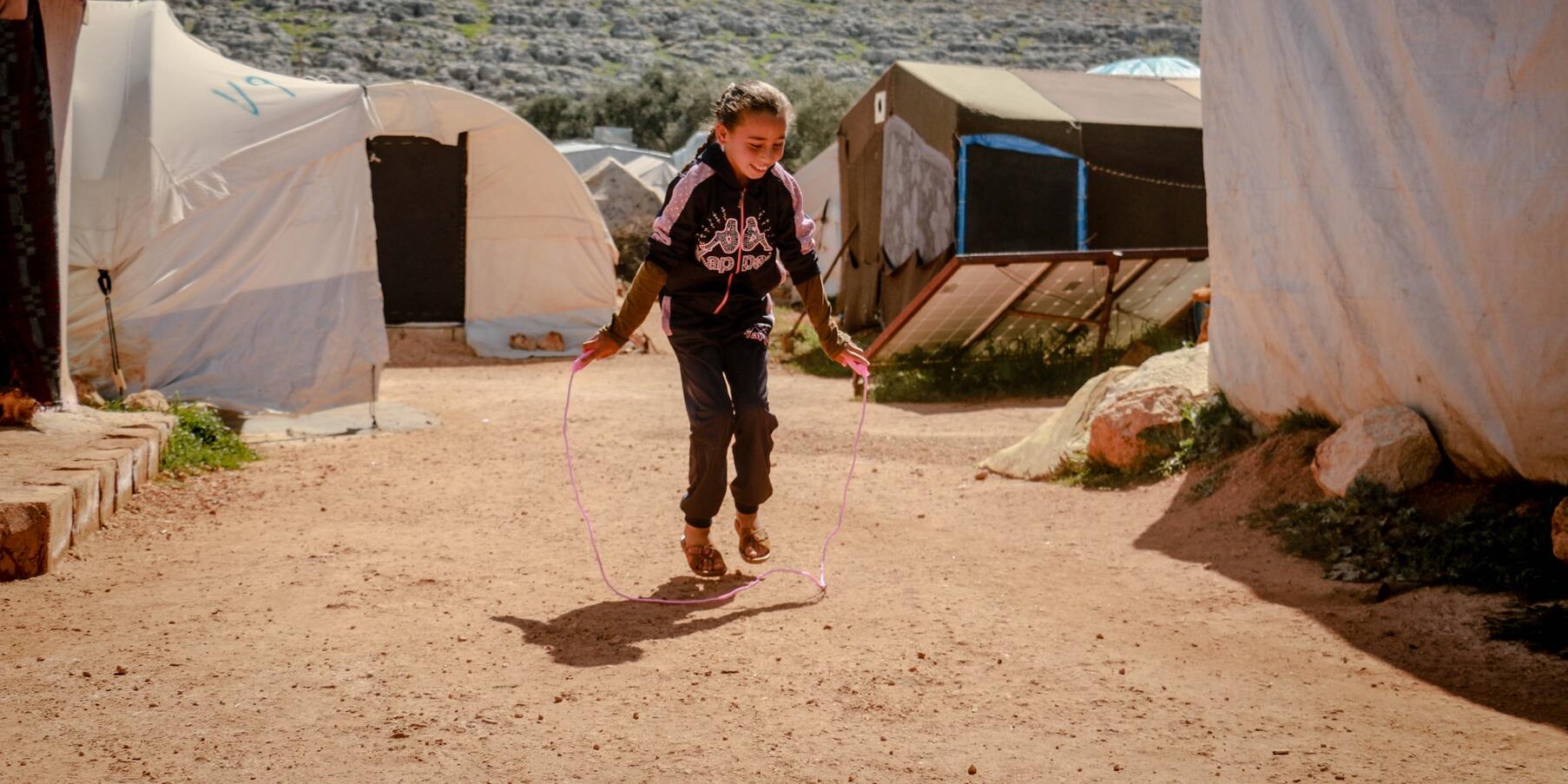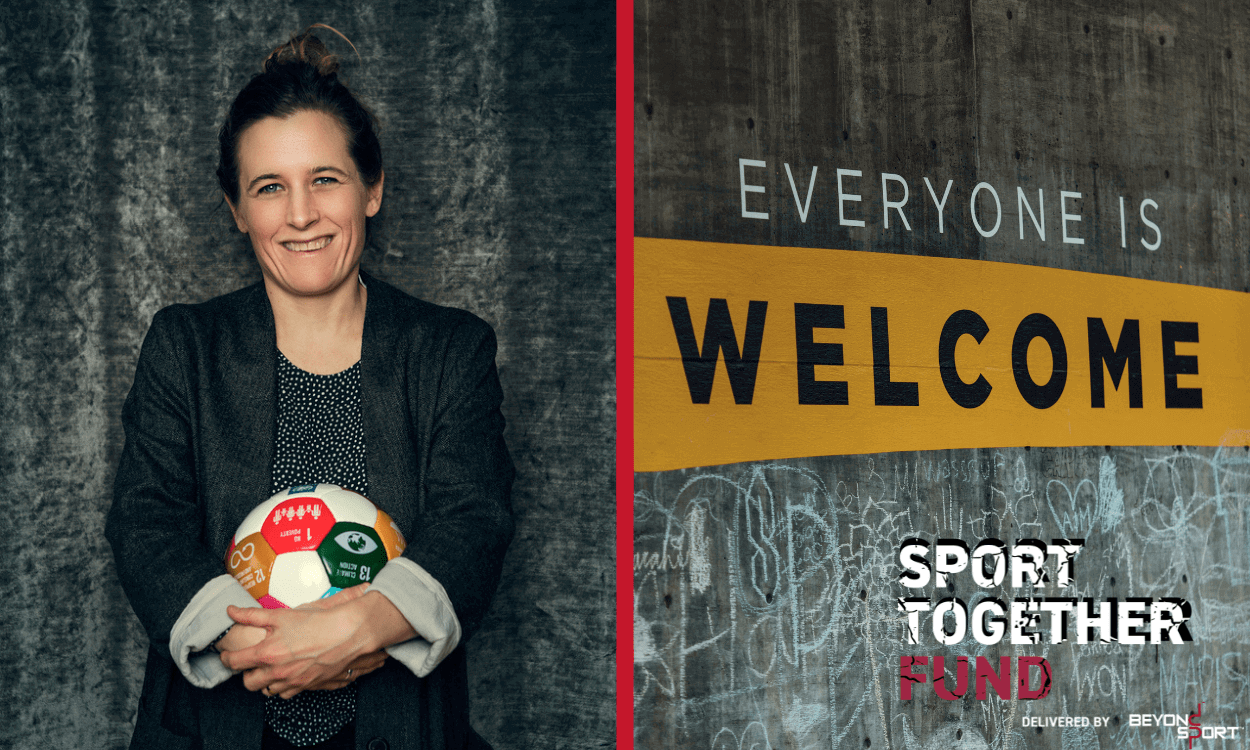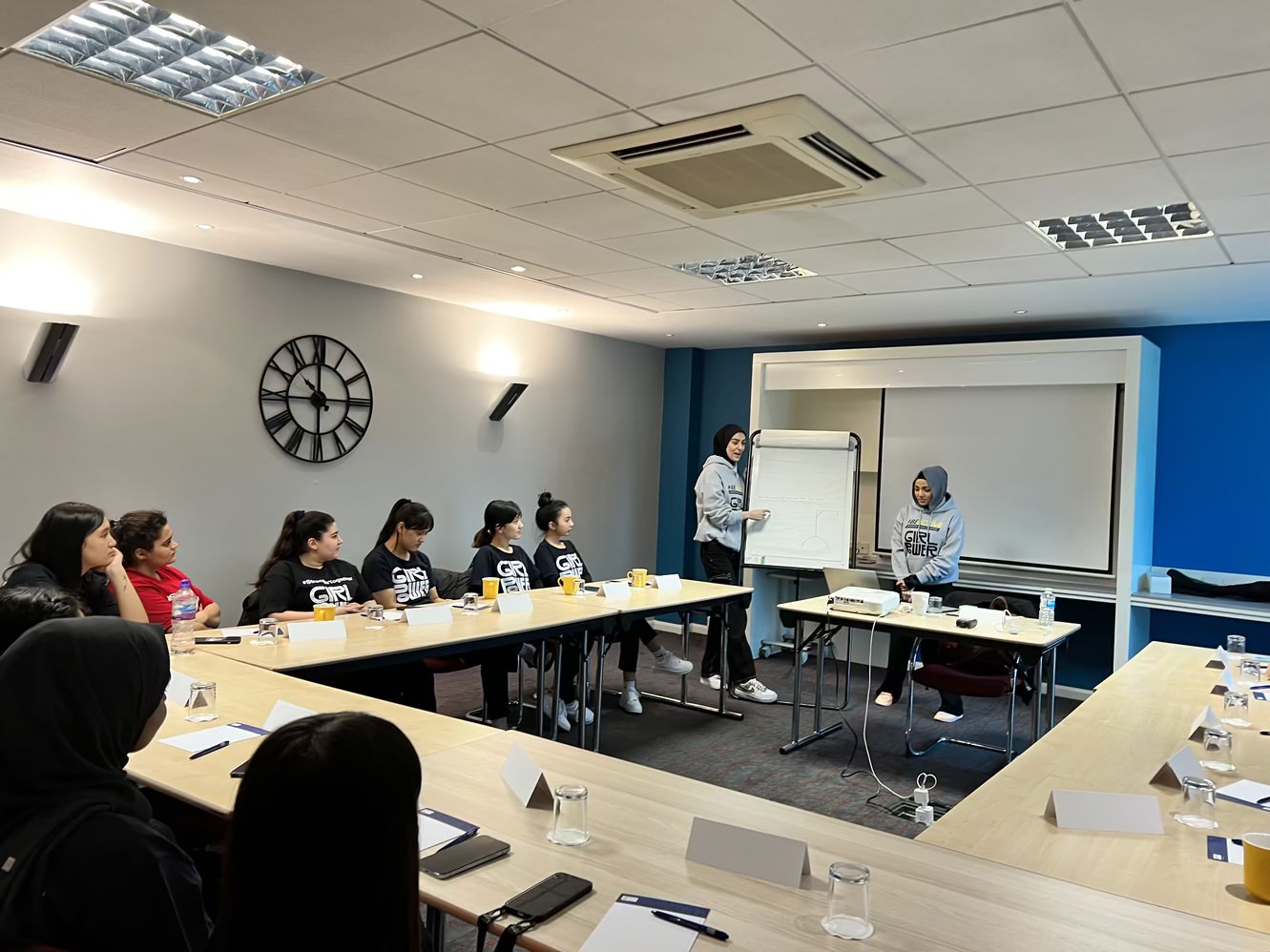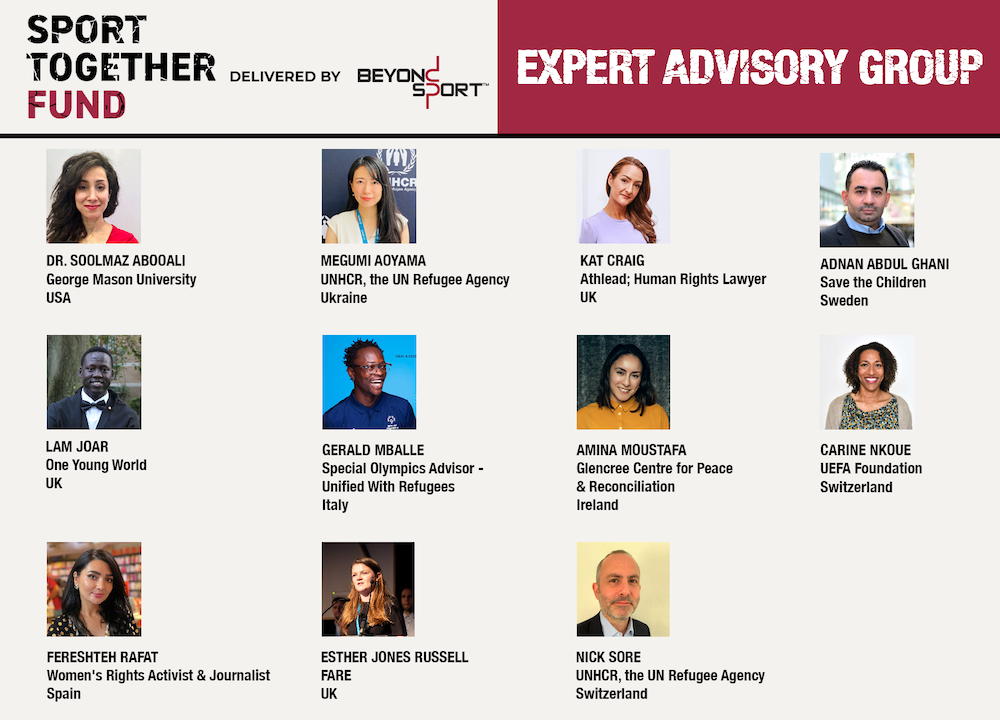
#SportTogether Fund in Focus: Our Q&A with Advisor Marisa Schlenker
April 14, 2023
Last week we announced the inaugural grantees of the Sport Together Fund (STF) delivered by Beyond Sport – seven organizations promoting well-being, inclusivity and hope through sports-based leadership training opportunities for refugees, asylum seekers and vulnerable communities.
But have you ever wondered what goes into designing a collaborative, community-based fund such as this? Then read on to hear from STF Advisor Marisa Schlenker who provides insights on the process and what it was like to work with the Fund’s Expert Advisory Group (EAG). She took part in the mapping and research phase of the STF alongside fellow advisor Lucy Mills. The former football player first got to know of Beyond Sport when she attended our 2011 Summit in South Africa. With 10+ years’ experience in sport for social development, she has since worked on a variety of projects and initiatives which position sport as a contributor to the Sustainable Development Goals. Schlenker is currently finishing her master’s thesis on conflict management and international administration at Konstanz University.

Beyond Sport takes a very intentional approach to its grant programs, guided by research and community experts to best serve those who are serving others. What were the key steps that went into the Sport Together Fund’s creation process?
I joined with a clear understanding that Beyond Sport was building an initiative to specifically fund, support and work with refugee focused and led sport-based initiatives, and that there was a need for deeper mapping of existing research, existing stakeholders on the issue and which systems and frameworks and ecosystems could be leveraged to learn from and possibly connect to at a later point.
In designing the STF, our focus was first on gaining a better understanding of the types of funding already existing to support refugee focused organizations, projects and partnerships, including those not using sport. This was followed by a review of the larger approaches to supporting forcibly displaced populations at the local and national levels. Then we looked deeper into the best practices and research around multi-layered approaches.
We examined the findings from sport for development and peace research which focused specifically on sports contribution and role in supporting forcibly displaced populations. These findings heavily influenced our discussions on the types of program the Fund would support. Importantly, we also interviewed a diverse range of individuals either working in the space, researching the sub-sector or themselves identifying as part of a displaced population, to gain additional insights to then feed into the fund’s design and guiding principles.
What was it like to collaborate with the Fund’s EAG members?
Personally, I learned so much more about refugee-led organizations, networks and movements including their approaches, methods, challenges and solutions. The EAG includes leaders with legal expertise, lived refugee experiences, research backgrounds at the intersection of sport, conflict resolution and diplomacy, and experience managing emergency responses, overseeing refugee-led organizations and movements, as well as project monitoring and evaluation. It was important to learn from each and every one of them and successfully transfer the knowledge into the design and execution of the fund.
Some areas that rose to the top in importance were:
- It can’t be overstated enough about the significance of refugees’ agency in shaping their own lives and those of their communities. This can also come through entrepreneurship within refugee communities. To be truly community-based, programs must involve affected groups in a community at every stage - assessment, diagnosis and prioritization - irrespective of sex, age, ethnicity and other attributes.
- There is a growing commitment to empowering “national and local humanitarian action” and thus, to work towards a greater localization that includes organizations formed and run by affected people. This is what we mean by refugee-led organizations.
- Understanding the specific and diverse determinants of displacement and migration are vital to helping health systems, policymakers and practitioners safeguard and promote the health and well-being of refugees and migrants.

Collective learning is a key principle of how we fund. Why is this exchange between grantees and the wider sport and refugee ecosystem so important?
Prioritizing collective learning encourages grantees to focus on strong and comprehensive monitoring and evaluation frameworks to be able to effectively capture the learnings and share back in an open and transparent way. This allows the collective and fund team to determine the best ways to transfer this knowledge to other grantees and to use it in the redesign and re-evaluation funds and their own priorities and processes.
The sport and refugee ecosystem involves all types of stakeholders from sport organizations to companies who are looking to sponsor or fund solutions to delivery partners and service providers. If the challenges and solutions can be shared with others and even outside of this fund network, the potential for change and significant social impact is even greater.
In your opinion what is important for people to understand regarding the experiences of refugees and asylum seekers?
This isn't a finding which was new to me, but rather it is a fact which I believe gets lost in a lot of the discussions around refugee and forcibly displaced populations: every human being has more than one identity. “Refugee”, “migrant” and “asylum-seeker” are only temporary terms; they do not reflect the whole identity of women, children and men who have left their homes behind to start a new life in a new country. Refugees are not a monolithic community of people. Each refugee has his/ her/ their own background, capabilities, skills, talents and aspirations.
Since no two refugee situations are the same, responses need to be tailored to address both the experience of exile and the root causes of displacement. Enabling refugees to use their own resources and skills to help each other should therefore be a priority.
The design and launch of the Expert Advisory Group was key to the success of the Sport Together Fund. To further support collective learning and progress, we asked them “what is the one thing you want the general public to know and better understand about people with refugee and displacement experiences?”
Click here to read what some of them had to say.

Learn more about the Sport Together Fund and how you can help support.